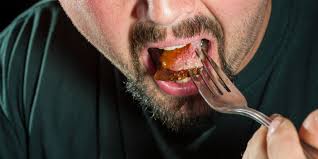
New Delhi. Summer season brings with it many health problems. Along with heat stroke, diarrhea, vomiting, fainting, another very common problem is food poisoning. Actually, due to the increase in temperature in summer, bacteria and dangerous microorganisms grow rapidly, which can easily contaminate food. Especially food sold outside. Apart from this, impure water can also cause food poisoning. Food poisoning can happen to anyone, but small children, the elderly and people with weak immunity are more at risk.
According to the World Health Organisation (WHO), every year around 600 million people around the world fall victim to food-borne diseases.
Bacteria responsible for food poisoning?
In most cases of food poisoning, infection of Staphylococcus or E. coli bacteria is found. Which directly affects the blood, kidneys and nervous system. Apart from this, germs like Salmonella, Staphylococci and Clostridium botulium also contaminate food. Infection caused by Clostridium botulium is considered the most dangerous.
Causes of food poisoning
- Using water contaminated with animal or human feces to irrigate crops.
- Not washing hands properly after defecation.
- Eating utensils getting dirty.
- Keeping dairy products at room temperature.
- Not storing frozen foods properly.
- Preparing vegetables and fruits without washing them.
- Not cooking non-veg foods properly.
- Consuming contaminated and dirty water.
Symptoms of food poisoning
- Cramps with sharp abdominal pain
- Diarrhea
- Headache, dizziness, nausea and vomiting
- Chills with fever
- Blurring before eyes
- unconsciousness
What to do in case of food poisoning?
- Drink plenty of water to avoid dehydration.
- Drink ORS to balance the electrolyte imbalance in the body due to vomiting and diarrhea.
- Avoid eating solid food in case of food poisoning. Also do not eat fried or spicy food.
--Advertisement--

 Priya
Priya Share
Share



